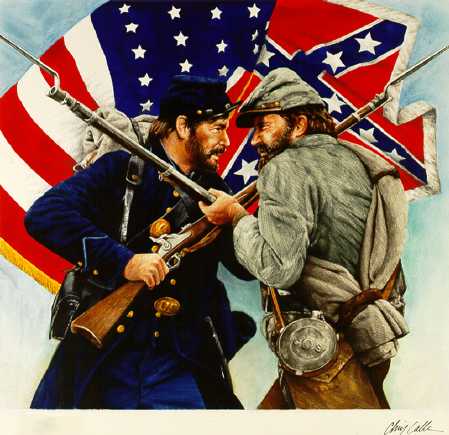150 Years Later

April 14, 2015
Seven score and 10 years ago, the bloodiest conflict in the history of the United States of America ended. In fact, no other war to date has surpassed the number of American soldiers that died. It produced (arguably) the greatest American president of all time, Abraham Lincoln. It was the Civil War.
The Civil War began on April 12, 1861 with the Confederate attack of the Union-controlled Fort Sumter, and ended on April 9th, 1865 with the surrender of General Lee at Appomattox Court House. The fight was between the Union (the northern states) and the Confederates (the southern states) over whether slavery was legally and morally right and just, and whether a state had the right to secede from the country. This is what Lincoln is referring to when he states that “a house divided against itself cannot stand.” Indeed, the question of slavery and state’s rights versus the government’s rights had to be decided quickly, or else America would be torn apart. Unfortunately, the answer didn’t come soon enough.
The Southern states soon followed South Carolina’s lead and seceded from the Union after Lincoln was elected, due to fear that Lincoln, who represented the North, would go against slavery. Lincoln, however, was more concerned with preserving the United States than with slavery, and only issued the Emancipation Proclamation (which freed a majority of slaves) as a military tool to weaken the South. He actually favored a voluntary colonization of Africa by the freed slaves, sending them back to their homelands.
Regardless of Lincoln’s personal views on slavery, his term as President helped America through one of its most difficult time periods. So difficult, in fact, that Mr. Walls, an AP US History teacher, said that “people underestimate how far reaching the impact [of the war] has been. In many ways, the Civil War is the half-time for US History. Everything can be divided into before the Civil War and after the Civil War.” He added that “the South has never recovered. Today, they are not economically equal to the North.”
Mr. Buchan, a US History teacher, said that he’s “happy it settled Federal power once and for all. I’m glad it establishes the authority of the Federal Government as the Framers intended.” On the other hand, Mrs. Tully, AP US History teacher, believes that the conflict isn’t quite over. She said that one of the major repercussions of the war is the “fight over Federal government versus state government. If one looks at controversial issues today, like gay marriage or growing marijuana, it is still state governments versus the Federal government.”
In the end, there is one thing that unites both sides of the conflict, the dead. Robert Sheffield (11) said that “one of the bittersweet things about the Civil War was that it led to the creation of the Arlington Cemetery. It now and will always serve as a reminder to the horrors of war.” 620,000 soldiers died in combat. It is only as recently as the Vietnam War that the combined total of American deaths in foreign wars has eclipsed the number of soldiers who died in the Civil War.
Mr. Walls also said this concerning the Civil War: “It was one of the defining moments in US history. Heroes and villains were on both sides. The Civil War took men like Abraham Lincoln and General Robert Lee and made legends.” Indeed, where would we be without the trials and tribulations of the Civil War? It helped strengthen our country in the long run, and still affects us today, over 150 years after the war ended.




















